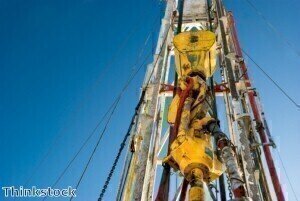Water/Wastewater
Toxic waste injected into the earth 'could have seeped into aquifers'
Jun 22 2012
Invisible dumping grounds in the US where toxic waste is buried under the ground could seep into shallow aquifers, polluting water supplies with harmful chemicals.
US industries have been injecting over 30 trillion gallons of toxic liquid deep into the earth for several decades, using broad expanses of the nation's geology as an invisible dumping ground, MSNBC have reported. Scientists have maintained that this is a safe practice, explaining that the deep layers of rock beneath the earth would safely entomb the waste for millennia.
However, a growing amount of research into the buried toxic waste would suggest that they may have been mistaken, with records from disparate corners of the United States showing that some of the waste could have leaked, sending dangerous chemicals up to the surface, or even into shallow aquifers, which store a significant portion of the nation's drinking water.
Contaminants from such a well were first spotted in 2010, when there were surface sightings at a Los Angeles dog park. Since then, there have been similar reports of oil and gas drilling waste in Oklahoma and Louisiana.
In South Florida, 20 of the nation's most stringently regulated disposal wells failed in the early 1990s, but with 680,000 underground waste and injection wells nationwide, scientists are struggling to calculate how many of these may be leaking.
Federal officials and many geologists maintain that the risks from these waste wells are minimal, and accidents are rare. They also maintain that the benefits of the sites far outweigh any plausible threat posed by injecting toxic chemicals into the ground.
But some experts suggest that this isn’t a realistic view, saying that within ten to 100 years, much of the groundwater could become polluted. Mario Salazar, an engineer who worked for 25 years as a technical expert with the EPA's underground injection program in Washington said: "A lot of people are going to get sick, and a lot of people may die."
With an increase in domestic oil production, there is now more toxic waste needing to be disposed, and man-made fractures are changing the earth's geology, allowing water and waste to flow more freely.
Posted by Lauren Steadman
Events
Jul 09 2025 Birmingham, UK
Jul 15 2025 Brighton, UK
Jul 23 2025 Sydney, Australia
Aug 24 2025 Stockholm, Sweden and online
Aug 27 2025 Busan, South Korea






.jpg)







